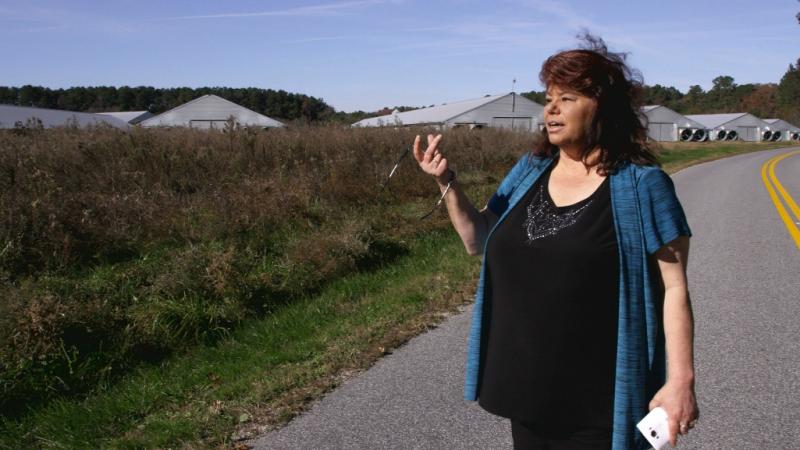The Unitarian Universalists of Southern Delaware and the Socially Responsible Agriculture Project will will host the official Delaware premiere of the documentary film “Right to Harm” at 6:30 p.m., Friday, Sept. 6, at 30486 Lewes-Georgetown Highway, Lewes.
The film is an exposé of the public health impact of concentrated animal feeding operations across the United States as told through the eyes of residents in five rural communities in the Delmarva region and across the United States. The film also examines political issues that stand in the way of necessary reforms. The screening is free and open to the public.
“Right to Harm” explores questions about the basic rights of everyone to have clean air and water. The film asserts that factory farms often produce millions of gallons of untreated waste that can destroy the quality of life for their neighbors. It reveals the devastating health impact factory farming has had on many citizens and the failure of state agencies to regulate industrial animal agriculture.
The film is created by the makers of the 2016 documentary “Sustainable,” and produced by journalist Mark Bittman.
“Once you learn what it’s like for people who live near these facilities and then experience it firsthand, you can’t go back,” said filmmaker Matt Wechsler. “I can’t bring myself to support a system that is inherently inequitable, and I wanted to share that feeling with others.”
Susan Goekler, co-chair of UUSD’s Social and Environmental Justice Committee, said, “Unitarian Universalists strive to choose foods that minimize harm and are protective of the environment, consumers, farmers, and all those involved in food production and distribution. This film provides information that will help us make food choices that minimize harm. It can also stimulate policy actions that contribute to the common good.”
Maria Payan, who is featured in the film, was forced to abandon her home outside York, Pa., because a nearby poultry operation tainted her groundwater, sickening her family for years. She is now a resident and clean water advocate in Sussex County, Delaware, where four of five chicken processing plants have received environmental violation notices since 2014.
The film also features Dr. John Ikerd, professor emeritus of agricultural economics at the University of Missouri, who discusses the impacts of concentrated animal feeding operations on rural communities.
Dr. John Ikerd, Maria Payan and Carole Morison will participate in a discussion after the film.
For more information, go to www.uussd.org or contact Mac and Susan Goekler at SocialJustice@uussd.org.





















































